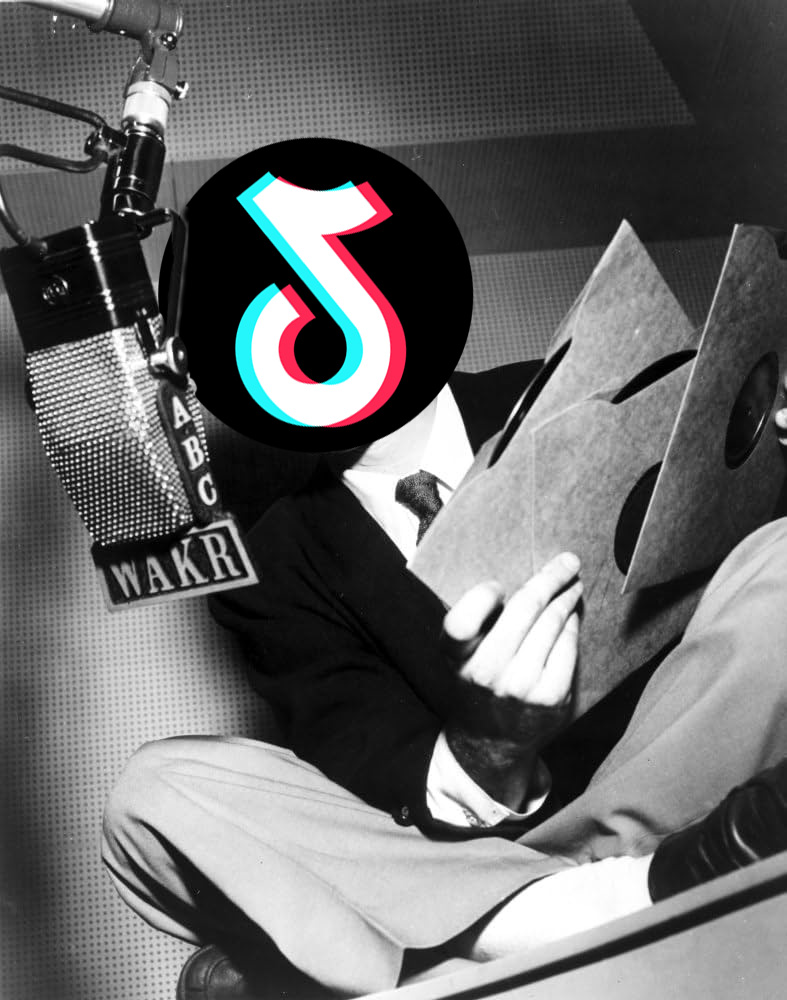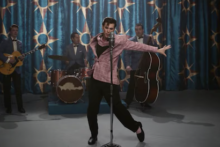Payola in the music industry has always had a PR problem. For some reason, the many different forms it has taken over several decades are all seen as inherently bad. Why anyone would view the handing over of envelopes of cash, the procuring of drugs and the carving out of shares of music copyrights, none of which are publicly declared, in exchange for radio plays of a record as inherently bad and morally dubious is a total mystery.
Payola was widespread in the 1950s in the US and the Congress-led investigations into it effectively killed the radio career of Alan Freed and it almost did for Dick Clark. When Freed asked for a cut of the publishing to push a song on radio, he understood exactly how powerful he was. Without him, the song would be unlikely to be a hit. So his argument was: do you want 100% of very little or, say, 75% of a lot.
Colonel Tom Parker used a similar argument with songwriters pitching songs to Elvis: the writers would have to surrender a cut of the publishing, sometimes as much as half, because only Elvis could make the recording sell at a phenomenal level.
There was a near monopoly position being abused here, but songwriters knew what the deal was and many capitulated. Dolly Parton, however, did not, refusing to hand over half of the publishing of ‘I Will Always Love You’ to Elvis and the Colonel. Elvis did not record it, but Dolly did more than fine with her own version and then, in the 1990s, had to dig her way out of an avalanche of cash when Whitney Houston covered it. Not all musicians are as strong, as wise or as prescient as Dolly Parton.
The scandal was such that in 1960 the FCC pushed for payola to be made a criminal act, something that did little to stop payola freewheeling through the US record and radio businesses in the 1970s. Three, of course, is a trend, so it was only fitting that payola scandals returned at scale again in the early 2000s.
There are now tight rules governing US radio and music promotion. But the peddlers of payola just contort into more insidiously sophisticated shapes. The techniques change as do the media outlets. Radio has only a fraction of the kingmaker power it once had, so payola slithers into streaming (rebranded as “playola”) and increasingly into social media.
Like a virus, it mutates as it jumps from host to host, getting harder and harder to identify and, therefore, to wipe out. Record labels – most significantly the majors, but also many independents – have been working with social media influencers for years, even employing dedicated teams or individuals who liaise with them. The shift has moved away from worshiping volume (i.e. working with the biggest names) to focusing on micro-influencers (who have followers in the tens or hundreds of thousands, rather than the millions).
Labels will use them to “seed” tracks ahead of release to get the public, as well as streaming services, excited about the “traction” they are seeing. This can involve explicitly raving about tracks or having a track, or a sped-up version of it, used in one of their TikTok posts or Instagram Reels.
Sometimes, these influencers are fans already and are just happy to be associated with a favourite act or get sent bundles of merchandise and VIP gig tickets. More often than not, however, there is a commercial transaction taking place, with the giveaway “#ad” or “#promoted” hashtags appearing in a blizzard of other hashtags in the hope no one really notices. The argument runs that this is just a different form of advertising. Everything is out in the open. Everyone knows what is happening. Everything is golden.
However, sometimes those practicing a sleight of hand show their workings. I was at a music business conference recently and there was a moment where the air was sharply sucked out of my lungs. A representative of an agency working with social media “creators” said 2025 was going to be the year they were going to do things differently as “promotional partners” for record companies and recording artists.
How they presented it had chilling echoes of how Freed conducted himself in his most hubristic years. While there has been much talk about how streaming is a rerun of the 1950s where the single is the record business’s centre of gravity, this shameless 50s cosplay feels a bit too on the nose.
Instead of just asking for a fee to promote a track on their channels, these social media names were also going to request master points on tracks they were promoting. This is something they feel they are owed.
Master points are essentially a share of royalties associated with a recording. They are normally given to someone involved in the creative process of making the record – such as the producer, the engineer and the A&R. Producers, especially if they are a hot name, can insist on this as part of their contract due to their creative input.
Typically, a master point is equal to a 1% royalty share, often taken out of the recording artist’s share. The logic runs: if only this producer can capture the sound you are after, they should get a share of the spoils over and above their fee.
The late Steve Albini was ideologically against taking points on records he produced. He would have made many millions of dollars here but could not, with a clear conscience, take them.
“I do not want and will not take a royalty on any record I record,” he said in a letter to the members of Nirvana in 1992 before starting work on In Utero. “No points. Period. I think paying a royalty to a producer or engineer is ethically indefensible. The band write the songs. The band play the music. It’s the band’s fans who buy the records. The band is responsible for whether it’s a great record or a horrible record. Royalties belong to the band.”
Other producers did not wrestle with their conscience in this way and would take the points, sometimes being involved in records that were so big they probably never needed to work again.
Whether or not you agree with the sharing of points, it is inarguable that producers play an important creative role in making records. Some will help acts re-write songs but not ask for a share of the publishing, taking record points instead.
No one, in good faith or with a straight face, can argue that some fleetingly famous TikTok personality is playing a creative role in the music they are promoting in their posts. Their own output and the way they talk about that music might be creative, but this does not affect the actual music in question, so to ask for points seems a stretch at best and a heist at worst. At a time when acts loudly complain about how little they make from streaming, to ask for a cut of their royalties feels cruelly opportunistic.
TikTok stars might salivate at the thought of a Parker-style shakedown of musicians, but none of them hold a monopoly position, so they should not be genuflected before as if they do. Paying them to promote your song is one thing; allowing them to take ongoing revenue from your work seems… stupid and reckless.
It all feels like spotting someone drowning and shouting out to them that you can only save them if they hand you a share of their salary forever.
This enshittification of social media marketing needs to be fought against. Unchallenged, it will lead to a bleak two-tier promotion system. Pay a flat fee and you get the desultory involvement of an influencer; or also hand over royalties and you get “proper” promotion. There’s your choice: Shit Lite; or Shit Premium.
The New York Times reported that Alan Freed, the big casualty of the first payola investigations, “died in obscurity and poverty” in 1965. With the centrality of the single today being a throwback to the centrality of the single in the 1950s, it would be absolutely awful if we saw a similarly swift Freedian slump of these social media grifters into obscurity and poverty as history, with icy precision, repeats itself.






